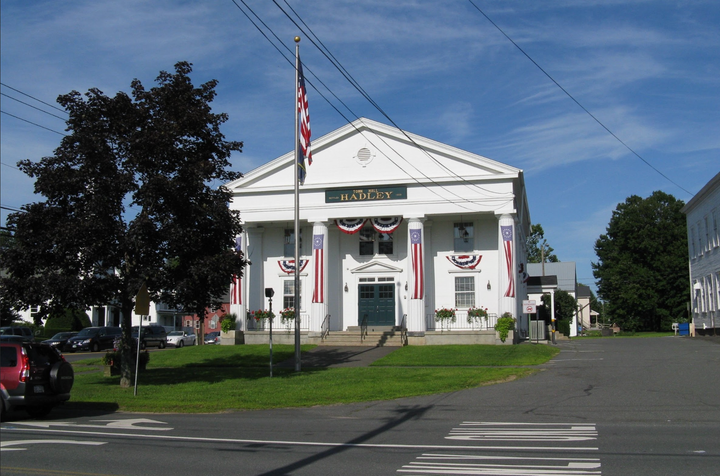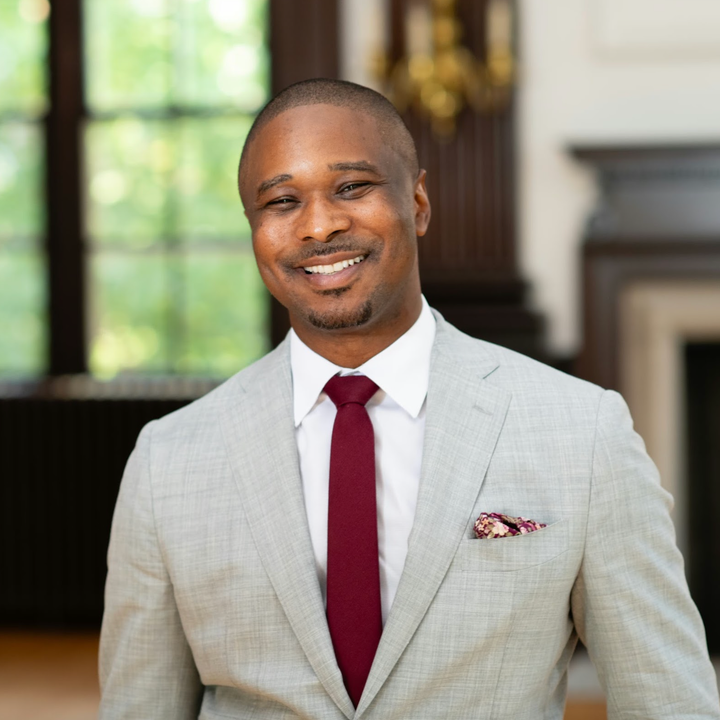Anthony Jack, Tara Westover Address Role of Inequality in Higher Education
Authors Anthony Jack ’07 and Tara Westover discussed their routes to higher education, the costs of leaving home for college and the challenges low-income students face on campuses in a conversation on Feb. 6. The event, which was titled “What Would Equality in Education Look Like?,” took place in Johnson Chapel.
Jack is an assistant professor of education at the Harvard Graduate School of Education. His book, “The Privileged Poor: How Elite Colleges are Failing Disadvantaged Students,” compares the experiences of the “privileged poor”— low-income students with boarding or prep education under their belts — and the “doubly disadvantaged” — low-income students who transitioned to college without those resources — at elite institutions.
Westover is the author of the New York Times bestseller “Educated,” her memoir detailing her path from a Mormon survivalist household that opposed public education to earning multiple degrees from institutions including Brigham Young University and Cambridge. Westover is currently a senior research fellow at the Harvard Kennedy School Shorenstein Center.
Chair of Anthropology and Sociology and William R. Kenan Professor of American Studies and Sociology Leah Schmalzbauer moderated the conversation, first asking Jack and Westover to describe their books and their motivation to write them.
“I wrote a book about myself, very modestly,” Westover joked. “I had an unusual path to education — I was able to go to Harvard and Cambridge — and I thought I should write about it.”
“I had no idea why I should write about it so at first I didn’t … I took it up again and realized I couldn’t write about the experience of education without writing about my family. I’m not sure how I thought that could work but I was convinced that I could do that,” she added.
Before turning to talk about his book, Jack first quipped that “when I first heard that this was going to be in Johnson Chapel, I was scared — I have seen some of the best talks of my life in this room.”
“When I first saw people write about first generation and low-income college students, I thought, ‘they get the story about half-right.’ Then I realized that I was experiencing the consequences of people getting the story half-right. I was inheriting the consequences of people who were setting policy at colleges and universities but were not dealing with the full complexity of understanding our experiences,” Jack continued.
Schmalzbauer moved the conversation to compare Jack’s and Westover’s vastly different home communities, with Jack hailing from the Coconut Grove neighborhood on Miami and Westover from rural Idaho. She asked the two to elaborate on the ways in which these experiences have shaped their perceptions of educational equality. “It’s very rare that we bring [both] the rural and urban into this conversation,” Schmalzbauer said.
For Jack, he noted that a range of circumstances — from the presence of gunshots to discriminatory redlining practices — as “built into the fabric of urban life.” These attributes, he said, have a significant impact on students’ schooling.
“You have this innate fight or flight as your norm,” Jack said. “I experienced that on a much lighter level than … other cities across the country. But that was something that I thought about and was how I moved through school.”
Westover highlighted that educational issues in rural schools tend to go unnoticed, partially because high school graduation rates are high. One issue prevalent in many rural communities, Westover said, is that students are not prepared for the steps after high school.
“The kids in my town where I grew up, three-quarters of them would have been farmers and they were happy with that … the problem is that they can’t really do that anymore,” she said. “They haven’t really received the education they need to know that they can’t stay.”
After reading short excerpts from both “The Privileged Poor” and “Educated” that emphasized the cost students pay when leaving home for college, Schmalzbauer asked Jack and Westover to elaborate on their perspectives on the cost of educational mobility and identify ways to lower that cost.
“Human beings are naturally very lost. We don’t like to lose things, and losing your home is one of the hardest things you can possibly do, to risk what you have to get ‘I don’t know what,’” Westover said. “I don’t know how to address it, but the thing that I always harp on is this will not be the last time [to lose things].”
“This is why I love the term ‘first generation college student’ as a name, because for me it naturally evokes an immigrant narrative. You are leaving one culture, one place for another; you are learning new norms, a new culture, new rules, a new way of being. But we focus too much on getting to America, to Amherst, that we don’t know what’s next,” Jack said.
Schmalzbauer afterwards gave Jack and Westover the opportunity to ask each other questions. Westover asked Jack how he came up with the seemingly oxymoronic term “privileged poor,” to which Jack recalled a moment in graduate school when he reread a paper he wrote for Professor of English Marisa Parham while at the college and rediscovered the joy of writing beyond prescribed boundaries.
Meanwhile, Jack asked Westover about common perceptions of rural America as a place absent of people of color; Westover responded that these ideas of the midwest are “outdated.”
To conclude the conversation, Schmalzbauer asked Jack and Westover to offer advice to students on how they should approach their education. Jack stressed the importance of taking advantage of the college’s resources — like therapy, study abroad opportunities and internships — while Westover urged students to imagine what experiences they would want their hypothetical children to have and create those for themselves.
The event was followed by a Q&A session, which covered topics like the role of gender in schooling and navigating home life while at school, and a book signing.
For Jeremy Thomas ’21, who attended the event, while he saw Westover as having “blindspots” on issues like race, he thought the event illustrated how “none of us, even at the conclusion of Amherst … should strive to consider ourselves to be ‘educated.’”
“We should work toward continuously educating ourselves because there will always be something we don’t know, and a time when that lack of knowledge will be expected of us, even if it is to only later be criticized, fairly or not,” he said in an email interview.
Sam Grondin ’21 found Jack’s and Westover’s conversation about navigating family life while at college especially pertinent.
“I’m a first gen college student so definitely there are different worlds having Amherst be one world and home be another world, and trying to bridge the gap between those worlds is very difficult. And I think that both of the speakers really hit home with that,” he said.
Olivia Gieger ’21 contributed reporting to this article.




Comments ()